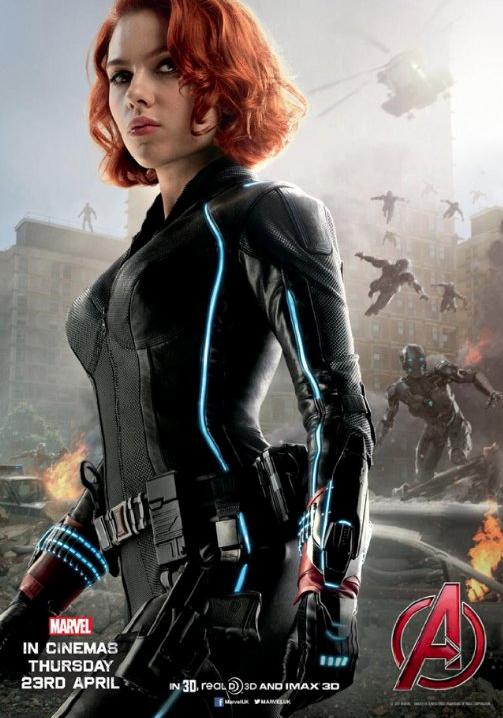let’s talk about the avengers: women, motherhood, and saving the world
WARNING: This article contains SPOILERS for Avengers: Age of Ultron.
Let’s talk about the Avengers.
By now, you’ve probably read a dozen reviews, watched numerous clips, seen snippets of interviews, had the argument about which superpower you’d like to have all over again, and maybe even seen the actual film. Or maybe you’ve stopped paying attention to Marvel’s offerings entirely; it’s all gotten a bit too formulaic for you. I respect that.
Even though we’ve been here before – almost exactly here, watching the same band of mighty heroes (and token heroine) battle it out to save earth, registering the box-office-smashing amount of cash raked up by Whedon’s ensemble film – there’s still a lot to talk about when we talk about Avengers: Age of Ultron.
Not wanting to bore you with yet another summary – you can get that a dozen of other places elsewhere – I’ll get right down to what bothered me about the film. Amidst the epic battle scenes, witty banter, and tear-jerking moments, Joss Whedon wove a love story. It’s a perfectly respectable filmmaking tactic, designed to get you more emotionally involved with the character’s lives, and Whedon even uses it to great effect, getting his duo to articulate the burdens of hero-dom (something articulated, arguably better, in his most famous work, Buffy the Vampire Slayer) through their romance.
The lovestruck pair? SPOILER ALERT: it’s Bruce Banner (a.k.a. The Hulk) and Natasha Romanoff (a.k.a. Black Widow).
The references to this potential couple start pretty early on the film, with Natasha batting her eyelids at Bruce come the first non-action scene and taking any opportunity to try and talk him into leaving the Avengers and running away with her. And as soon as she started hinting, I started feeling uncomfortable.
There’s nothing wrong with a love story, and there’s nothing wrong with being in love. There’s nothing wrong with using love as a plot device to talk about the larger thematic issues, as Whedon is ultimately trying to do. But something makes me sad when I see a filmmaker – a self-declared feminist with a huge platform, at that – forcing their female characters into the same old moulds.
Black Widow is a kickass, tough-as-hell, literally strong female character. She has been, for the past nine films that make up the Marvel Cinematic Universe, one of only two superheroines (the other being Guardians of the Galaxy’s Gamora; not including love-interests like Iron Man’s Pepper Potts or Thor’s Jane Foster) with big-screen roles. And Guardians did to Gamora what Avengers: Age of Ultron is doing to Black Widow: before she’s a hero or a person, she’s a woman.
There’s an unsettling implication in storylines like this that these women are somehow incomplete. They are incomplete without a man, their real purpose lies in childrearing, etcetera, etcetera. It’s the same conversation I’ve had dozens of times in real life: oh, but you won’t know love until you have a baby. Again, nothing wrong with babies, if that’s what you’re into, but I’ve got other plans. And it seems like Black Widow, Gamora, I-wish-I-had-other-examples-but-there-really-aren’t-that-many-Marvel-women, had plans until Cupid came calling.
Age of Ultron is disappointingly explicit when it comes to Black Widow’s “incompleteness”. During an impassioned speech to Bruce Banner attempting to convince him to leave the Avengers for the quiet life, we learn about Natasha’s dark past: specifically her upbringing at what looks like the Boarding School from Hell, where she was trained as an assassin and chemically sterilised to prevent her from becoming pregnant – because being a mother makes you emotionally incapable of murder, apparently. Through her tears, Natasha refers to herself as a ‘monster’ because she is unable to bear children.
Women fall in love. Women have babies, and their lives change because of it. Women yearn for children. Women get tired of the fight, and just want to settle down somewhere where aliens are not trying to kill them. We are a diverse bunch. But this is what storylines like Black Widow’s, Gamora’s, and countless other supporting female’s forget: they forget that we’re not all about procreation, and we’re not all in the battle just to get a boyfriend. I wish that when I talked about the Avengers, I didn’t have to talk about this.


